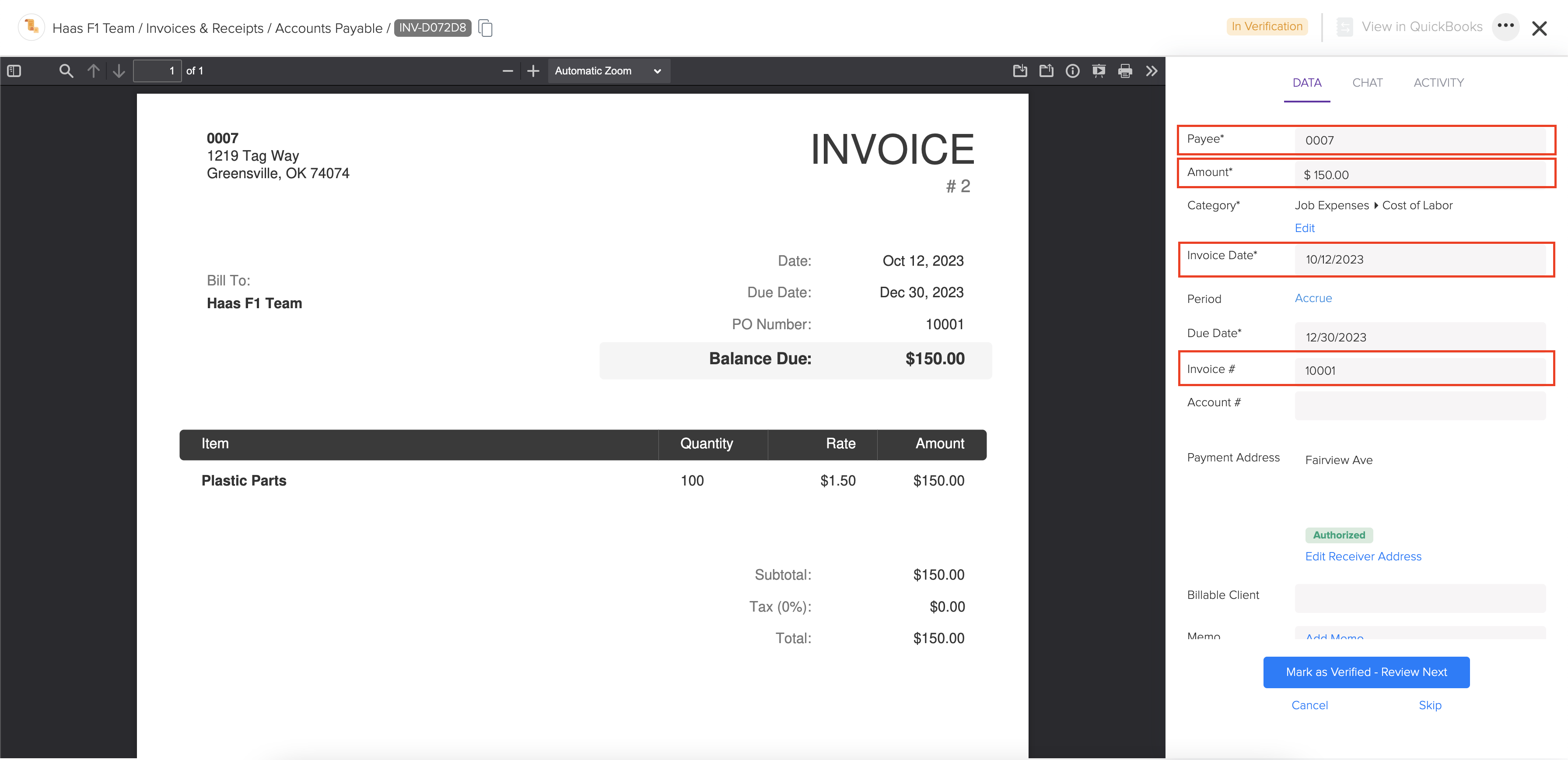Streamlining Finances with Docyt's Duplicate Invoice Detection
Detecting Duplicates Before Approval
Our duplicate invoice detection feature is designed to flag invoices that are duplicates. This means you can identify potential duplicates before they are approved. By catching these duplicates early, we help you avoid overpayments, streamline your financial operations, and ensure your financial records remain accurate.
A. Understanding the Duplicate Invoice Detection Process
Docyt's duplicate invoice detection process is a meticulously engineered system that utilizes various clues from invoices to identify duplicates accurately. We employ four primary identifiers as matching criteria:
1. Vendor/Payee: The name of the payee or vendor on the invoice is a fundamental identifier in the duplicate invoice detection process. By cross-referencing the vendor's name on incoming invoices with the records in our system, we can promptly detect potential duplicates.
2. Amount: The total amount specified on the invoice is a critical factor. Duplicate invoices often have identical amounts. By carefully examining this field, we can raise an alert if an incoming invoice matches another regarding the amount due.
3. Invoice Date: The date on which the invoice was issued provides valuable information for identifying duplicate invoices. We maintain a record of invoice dates in our system and compare them to those on incoming invoices. Any invoice with the exact issue dates is flagged as a potential duplicate.
4. Invoice Number: Each invoice typically carries a unique identifying number provided by the vendor. The invoice number is a crucial piece of information that we use to distinguish invoices. If an incoming invoice shares an invoice number with one already in our system, we flag it as a potential duplicate.

B. Sequential Validation Process for Accuracy
We use a sequential validation approach to ensure high accuracy in the duplicate invoice detection process. Here's how it works:
1. Vendor and Amount: The initial validation step examines the vendor's name and the total amount due on the invoice. If both of these fields match an existing invoice in our system, the process moves to the next level of validation.
2. Invoice Date and Invoice Number: In the second validation phase, the system checks whether the invoice date or the invoice number matches those in our system. If a match is found at this stage, the system conclusively marks the invoice as duplicate.
C. Benefits of Our Duplicate Invoice Detection Process
The advantages of our advanced detection process are numerous and invaluable to business:
1. Enhanced Financial Accuracy: Our process bolsters financial accuracy by systematically checking invoices against four key identifiers, reducing the risk of overpayment and financial discrepancies.
2. Time and Resource Savings: The duplicate invoice detection process saves time and eliminates the need for manual scrutiny of every incoming invoice, allowing you to allocate your resources more strategically.
3. Efficient Workflow: By flagging duplicate invoices before they enter the approval process, we contribute to a more streamlined workflow, ensuring that resources are well-spent on resolving discrepancies or chasing erroneous payments.
4. Preventative Financial Management: Our process serves as a preventative measure, allowing you to avoid costly errors before they happen and safeguard your financial operations.
In conclusion, Docyt's duplicate invoice detection process is a testament to the power of technology in modern financial management. By intelligently utilizing matching criteria such as vendor name, invoice amount, invoice date, and invoice number, we ensure that duplicate invoices are identified and addressed promptly. With Docyt, you can trust in the reliability and effectiveness of your financial management system, making the management of duplicate invoices a thing of the past.